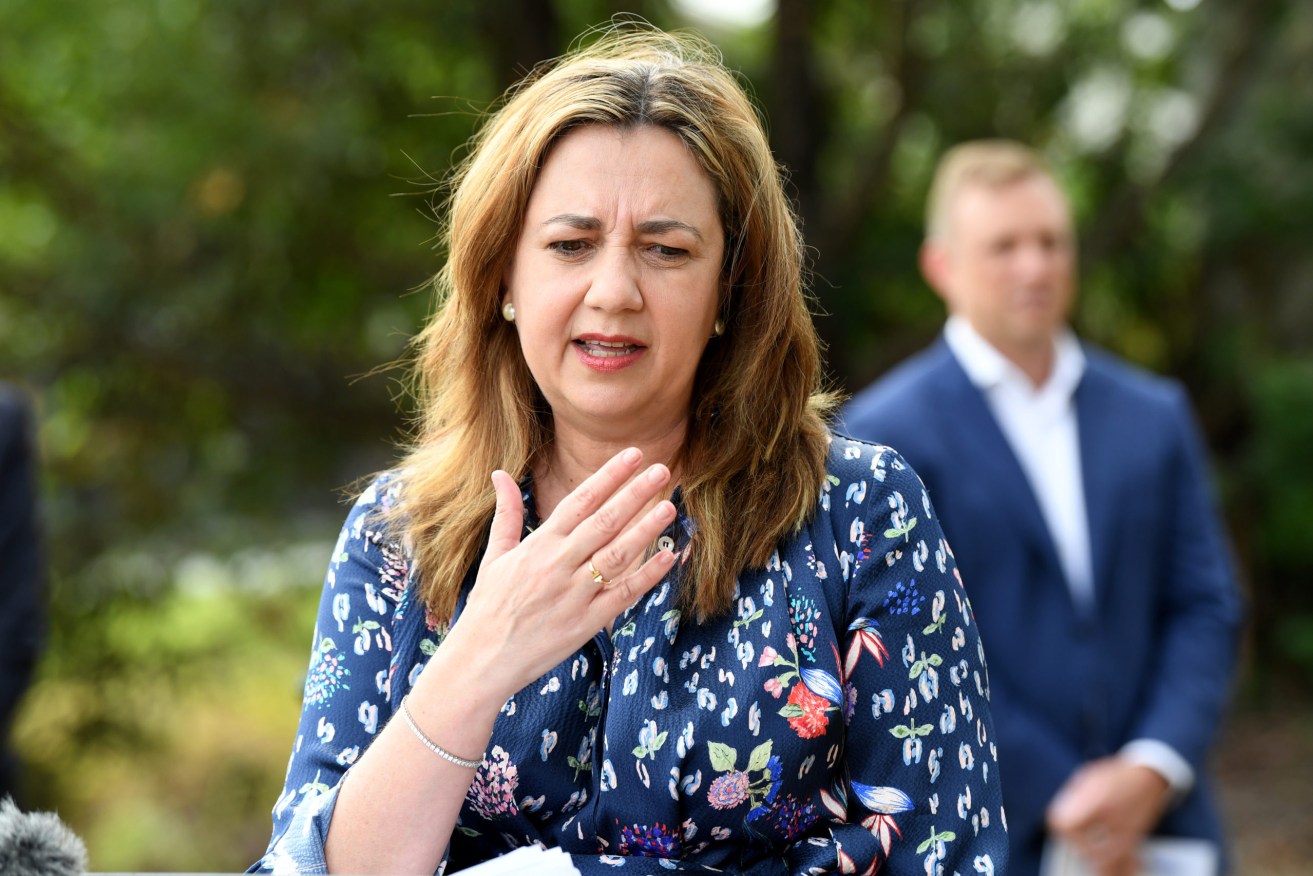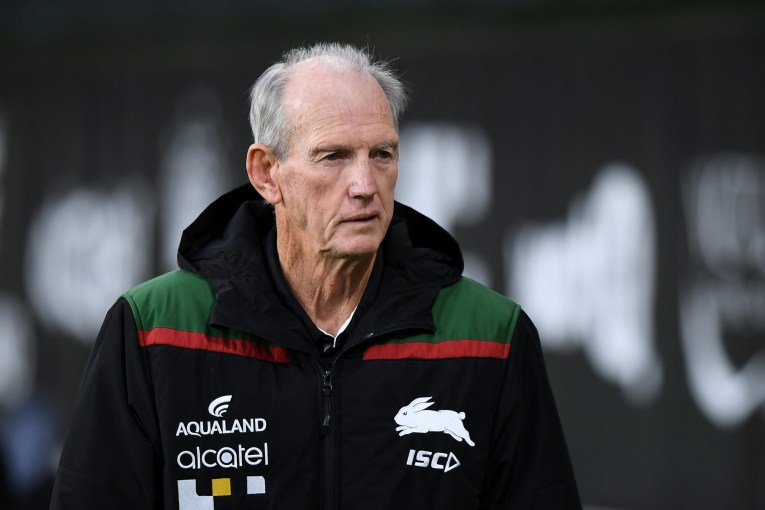‘Thought bubble’: Investors lash Premier’s rent caps
The Real Estate Institute of Queensland (REIQ) has blasted a State Government proposal to impose rental controls to combat rising costs and homelessness as showing “no grasp on basic economics”.


Premier Annastacia Palaszczuk has been blasted for her housing crisis "thought bubble". (AAP Image/Darren England)
The REIQ’s spray, via its fierce lead advocate and CEO Antonia Mercorella, who led the sector’s attack on the ultimately vanquished land tax, heads an overwhelming negative backlash against the proposal flagged to reporters by Premier Annastacia Palaszczuk during a media conference.
Palaszczuk gave her strongest indication rent caps were a possibility when she said the government was”looking very seriously” at how the policy could be implemented.
Mercorella called the idea of capping rental charges to relieve cost of living pressures on struggling renters as a “thought bubble” and a “blazing red flag to Queensland property investors” that would shatter any remaining confidence and deter further investment activity.
“In the middle of a housing crisis caused by lack of housing supply, it’s beyond belief that the government is now proposing a measure which innately discourages further supply,” she said.
“No one denies that there is an immense amount of pressure for the most vulnerable in our community, but rent control or freezes are not the answer.
“It’s not only the property industry calling this out, several leading economists in Australia agree that rent control is not the solution.”
Tim Lawless, head of research at CoreLogic Asia Pacific, said rents had remained relatively stable in line with annual inflation in the decade prior to Covid, but soared in the pandemic’s aftermath on the back of shrinking housing supply, surging migration and smaller household sizes.
“Policy responses such as rental caps do nothing to address the underlying situation and arguably make the supply side of the situation all the worse over the longer term,” he said.
Ray White chief economist Nerida Conisbee said rental caps imposed in other parts of the world had proved disastrous.
“In the mid 1990s, rent control in San Francisco resulted in a 15 per cent decline in rental properties and a further five per cent increase in rental levels,” she said.
“Controls put in place in Berlin in 2020 have now resulted in a halving of rental properties available while rents in nearby cities have skyrocketed as people have had to move further out to find accommodation.”
Conisbee said the fundamental problem was a shortage of rental housing that would not improve if private investors were driven from the market due to lower returns.
“Capping the return on housing makes it less attractive as an investment option and would lead to other investments becoming more attractive,” she said.
“For those that are prepared to hold on to housing as investments, there is less money available for repairs and maintenance. Fewer rental properties that are more rundown is the outcome and this flows through to desirability of suburbs where rent control is in place.
“The solution to fixing affordability for renters is providing enough housing for the people in places that people want to live”
However, Tenants Queensland CEO Penny Carr said she had heard stories of renters going to real estate agents months in advance to find out if their lease is being renewed and if they are up for a hike.
“One of them has had two increases in a row, one of them substantial, and she thinks to accommodate the next one she’s likely to have to get a second job because she’s a single parent,” Carr told AAP.
“She manages her money very tightly.”
Ray While principal and lawyer Avi Khan said rising costs were already hitting landlords hard and eroding their confidence in the sector.
“The cost of maintenance has gone up, rates have gone up, interest rates have gone up,” he said.
“And in many cases, landlords are using their savings to meet their costs even as rents have increased.”
Nicola McDougall, Property Investment Professionals of Australia (PIPA) chair said the premier’s “knee-jerk policy position” was in response to a QCOSS report that showed homelessness in Queensland rose by 22 per cent in the four years to 2021-22 compared with just 8 per cent across Australia.
She noted the report did not offer rent caps as a potential solution.
“PIPA research last year showed 160,000 rental properties had been stripped from Queensland markets in just two years – with even more investors set to sell if rental caps are introduced,” she said.
Mercorella said the timing of the premier’s remarks was intriguing given a Greens’ Bill to freeze and cap rents had been strongly dismissed by Queensland’s Housing Minister Leanne Enoch as being “extremist”.
“Notably, the chair of the Community Support and Services Committee, Ms Corrine McMillian MP, said that rent control would not alleviate the key underlying cause of Queensland’s high rent prices – supply,” Mercorella said.
“The chair also went on to say that studies show that ‘rent controls are not effective in improving housing affordability for renters and can lead to distortions in the rental market, which result in poor outcomes for tenants including reducing the stock of rental properties.’”
Mercorella said the industry did not have the luxury of wasting time on “ineffective Band-Aid solutions”.
“With the Queensland property industry providing $27 billion in taxes, it’s inconceivable that this government continually bites the hand that feeds them and provides vital shelter for their constituents,” she said.
“Entertaining rent control is incredibly dangerous for the stability of Queensland’s property market, as investors are the ones doing most of the heavy lifting when it comes to housing the 1.5 million Queenslanders who rent their homes.
“We implore the government to retract these left-field remarks which have damaging consequences.”
Deputy premier Steven Miles said there was a big difference between freezing rent completely and a potential limit on increases.
“We’ve heard from families who have seen their rents increase 20 (or) 30 per cent, we’ve seen evidence of some property managers price gouging in the market … so we want to have a conversation about what should be done about rents,” he said.
-with AAP












